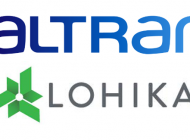So yes, we do write about startups, which aim to change the world, and the outsourcing industry, which allows others to change the world at a lower cost. Where is the logic, you ask?
I felt the need to explain what we are doing here at GoalEurope.
There is no question that having financial resources and technical abilities makes it easier to create and grow new ventures. So, who has the money, ideas and experience in Eastern Europe?
If you look at the post-socialist countries (which I loosely and academically incorrectly call Eastern Europe), they have many macroeconomic issues in common. Most of the wealth is being formed predominantly in the traditional sectors, such as construction, retail or banking. The emerging Europe has plenty of money-making opportunities at home without a need to get into risky and complex high-tech ventures.
Let’s face it; it is much easier to become wealthy by replicating an existing business model, be it a car rental, a chain of pharmacies or an online book store - provided the market niche is still available, and many are. Raising capital for such projects is much easier. The success has been proven elsewhere, and the unsophisticated investor understands where and how the money will be made.
So, who enters the global high-tech scene from eastern Europe?
New Generation of Young Entrepreneurs
In Eastern Europe, getting on the wealth ladder without capital, connections and experience is becoming more difficult, as the more successful and experienced entrepreneurs have an advantage over cash-strapped graduates without much work experience. But the young ones have their social media, startup revolution, the inspiration from the out-of-nowhere success stories such as Instagram, and no memories of the previous bubbles.
This is one strong driving force behind the surge of high-tech entrepreneurship, lacking experience and money, but compensating for it with energy and willingness to go global, relocate if necessary and give up a half of the company to those few investors who understand the high-tech world and are prepared to take risks.
Yet the major source of funding for startups, the local business angels, does not understand how social media or industry-specific software solutions will create new wealth. Thus some projects with high potential are likely to be bypassed if their core value proposition is not obvious for a non-technical business angel.
Hence, many ideas coming from young entrepreneurs are in the B2C industry they know. They find new ways of sharing pictures, using mobile phones for payment, ticketing, flirting and entertainment, simplifying food or taxi ordering. However the B2B sector, where enterprise solutions dominate, is a much larger market. Enter software development companies as future players.
Software Development Companies
Undoubtedly, software development companies are bureaucratic machines designed to make money primarily by offering IT resources at a discounted cost. What they also have is an incredible amount of IT expertise; think Adobe’s Dreamweaver development team inRomania, Java testing team in Siberia, SAP R&D center in Bulgaria, and so on.
At the same time, the outsourcing managers understand enterprise software and the business problems it solves. Many software development companies have in-house R&D centers set up to generate new ideas for their existing clients.
Then there is an ambition to do something innovative. Many founders of software development companies are scientists and superior technologists who realize that their core capabilities go way beyond reselling of IT skills. At the same time many of them lack the time to fully concentrate on an innovative project, as they are busy managing the existing cash-generating businesses.
Given that most Eastern European economies lack a substantial local need for software development services, outsourcing companies learned to market themselves internationally, a useful skill when it comes to building a global high-tech project.
Here at GoalEurope we have already written about CEOs of outsourcing companies who have started new ventures (InvisibleCRM, yaM Labs, POIdo). Then there are more who prefer to stay under the radar for now. As the consolidation of the outsourcing industry continues, more time and capital will be released for the owners to concentrate on their ambition to create their own innovative software products.
In the future there certainly will be more high-tech ventures coming out of outsourcing and GoalEurope will write about them. Soon I will be returning to the subject, substantiating it with more figures and examples, and hopefully, more ground-breaking new projects that are currently brewing within the not-so-exciting software development industry.
My last point is this. There is also a third group of global entrepreneurs emerging in the region. These are the owners of successful local firms (such as WhoAPI and Mediatoolkit from Croatia) who understand their industry and identify new business opportunities with a global potential. Local knowledge may differ from the needs of the global markets, yet it is a step in the right direction.












